Barefoot Joe is a novel by W. B. Kinsella, which won the Hague and Gnon Mifflin Literary Fellowship and the Iowa Baseball League. It is the basis for the international film “Field of Dreams,” translated into Arabic by Mohamed Salah Nasser.
The novel is about baseball and the protagonist’s dream of turning his cornfield into a large baseball stadium. His wife’s family opposes him, but his wife stands in solidarity with him. The protagonist has friends, one of whom weakens and betrays him, but his spirit of love prevails. He persists despite all the obstacles that stand in the way of his dream. What distinguishes this work is that it highlights the protagonist’s creative spirit, as he transforms his cornfield into a large sports stadium and faces challenges he had hoped to overcome. This demonstrates that perseverance and determination are the primary motivation for progress and success. They said of the novel: “It’s a wonderfully terrifying book, not so much about baseball as it is about dreams, magic, life, and what is quintessentially American… a work that will outlive this season and many more.
Barefoot Joe
د.ا7.00
A novel that tells the story of a barefoot baseball player who suddenly appears on a farm, changing the course of the lives of those around him in a magical and hopeful way.
Available on backorder
| Categories: | Literature, Novels, stories, World literature |
|---|---|
| Tags: | Fiction, literature, Novels, thought |
| Author | |
|---|---|
| Year |
You may also like…
-
Maherdar
د.ا5.00A novel that combines fantasy and social drama, it addresses the journey of its characters in a world filled with psychological and existential challenges within a contemporary context.
-
The Old Man
د.ا5.00A novel that depicts man’s struggle with nature through the journey of a man and a young prisoner as they confront a devastating flood on the Mississippi River.
Arabic/English -
A Space Odyssey 2001
د.ا5.00A science fiction novel that takes the reader on a journey through space to explore the secrets of the universe and the interaction of humans with artificial intelligence in the future.
Arabic/English -
In the House on the Hill
د.ا5.00A novel that sheds light on the inner conflicts and complex human relationships that unfold in a secluded hilltop house, with a profound and realistic psychological approach.
Arabic / English
Related products
-
A world that is not ours
د.ا2.13Ghassan Kanafani is a Palestinian novelist, storyteller, and journalist, and is considered one of the most famous Arab writers and journalists in the twentieth century. His literary works, including novels and short stories, were deeply rooted in Arab and Palestinian culture
د.ا3.55 -
The Alchemist
د.ا4.97The Alchemist (Portuguese: O Alquimista) is a novel by Brazilian author Paulo Coelho which was first published in 1988. Originally written in Portuguese, it became a widely translated international bestseller. The story follows the shepherd boy Santiago in his journey across North Africa to the Egyptian pyramids after he dreams of finding treasure there.
د.ا7.10 -
What’s left is yours
د.ا2.13Ghassan Kanafani is a Palestinian novelist, storyteller, and journalist, and is considered one of the most famous Arab writers and journalists in the twentieth century. His literary works, including novels and short stories, were deeply rooted in Arab and Palestinian culture
د.ا3.55 -
Palestinian resistance literature under occupation
د.ا3.55Ghassan Kanafani is a Palestinian novelist, storyteller, and journalist, and is considered one of the most famous Arab writers and journalists in the twentieth century. His literary works, including novels and short stories, were deeply rooted in Arab and Palestinian culture
د.ا4.97 -
For Bread Alone
د.ا4.97For Bread Alone , al-Khubz al-Hafi) is a controversial autobiographical work by Mohammed Choukri. It was written in Arabic in 1972 and translated into English by Paul Bowles in 1973.[1] In 1980, it was published in French as Le Pain Nu in a translation by Tahar Ben Jelloun. The novel has been translated into 39 foreign languages[2] and adapted into a French graphic novel by Abdelaziz Mouride [fr].[3]
د.ا7.10 -
Prisoner of Heaven
د.ا7.10After the shadow of the wind and the angel game, I ended my strange meeting with Carlos Zafon in the third part of the Tomb of Forgotten Books series in this piece that I read while trying to understand what was going on in his head, which wanted the prisoner of heaven to tell us the dark nights of Barcelona from the window of its prisons, that prison that embraced Martin for a long time and through which he excelled in writing The Game of the Angel, which was the hero of that novel David Martin and Isabella, and we got to know their end, which was not confirmed by the lines. The writer also explains that what we can consider a coincidence with us may be wisely studied and what we interact with with all honesty may be fake and obsolete as the first boot, the past is just images stuck in our heads and just a glance of it returns to expose itself, and opens new cracks in our hearts, pushing you to search and explore what the truth is and to what extent it can comfort you or in any proportion that may make you a wreckage between the legs, yet the search for it is The way of salvation,
د.ا8.52 -
About men and guns
د.ا2.13Ghassan Kanafani is a Palestinian novelist, storyteller, and journalist, and is considered one of the most famous Arab writers and journalists in the twentieth century. His literary works, including novels and short stories, were deeply rooted in Arab and Palestinian culture
د.ا3.55 -
My journey from doubt to faith
د.ا2.13I refused to worship God because I was immersed in worshipping myself and admired the flash of light that began to flash in my mind with the opening of consciousness and the beginning of the awakening from the cradle of childhood.
This psychological state was behind the controversial scene that recurs every day. I also missed the origins of logic and I am dealing with logic and I did not realize that I am contradicting myself as I recognize the Creator and then say who created the Creator and make him a creature at the time when I call him a creator, which is sophistry itself.
Moreover, to say a first cause of existence requires that this cause must exist in itself and not dependent or need others to exist. If a cause needs a cause, this makes it one of the causal links and does not make it a first cause.د.ا3.55

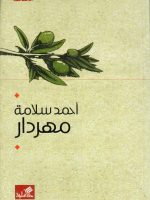
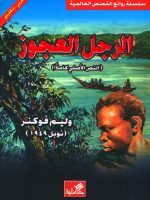
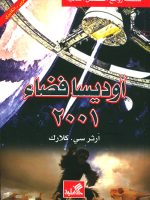
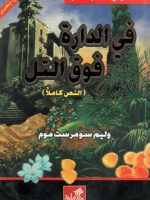
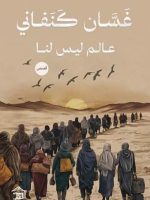
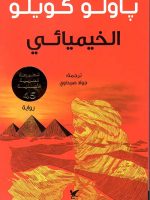
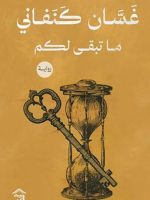
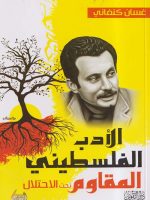
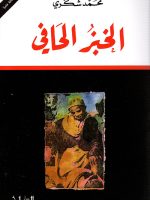
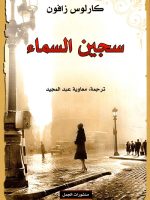
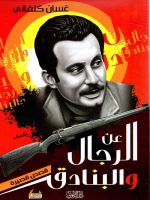
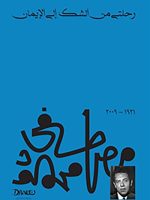
Be the first to review “Barefoot Joe”